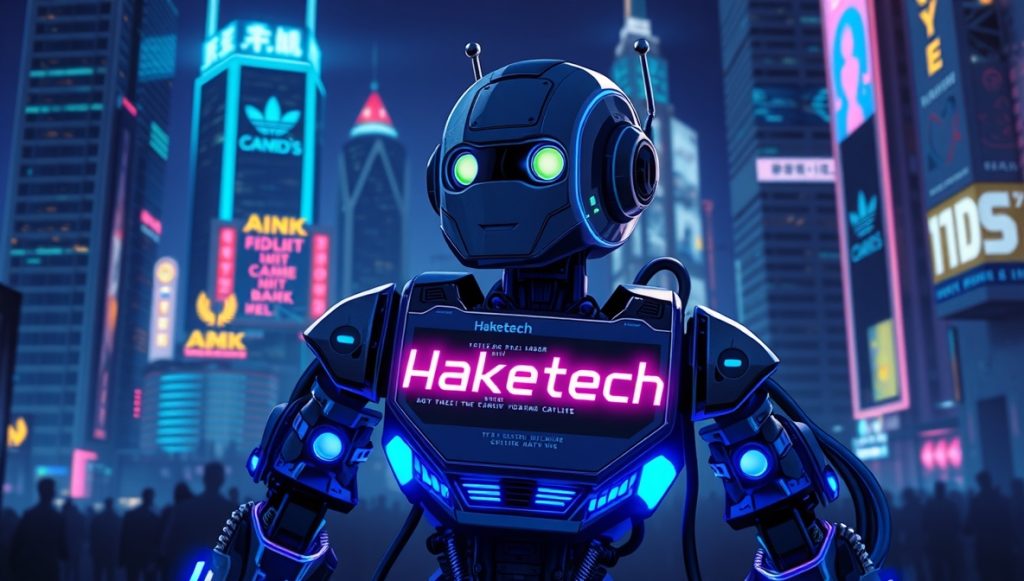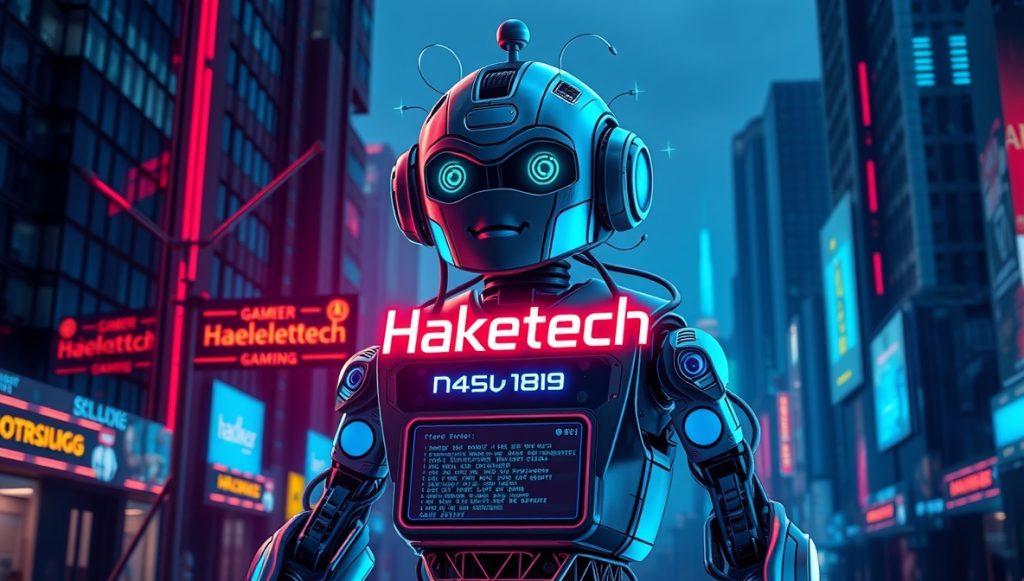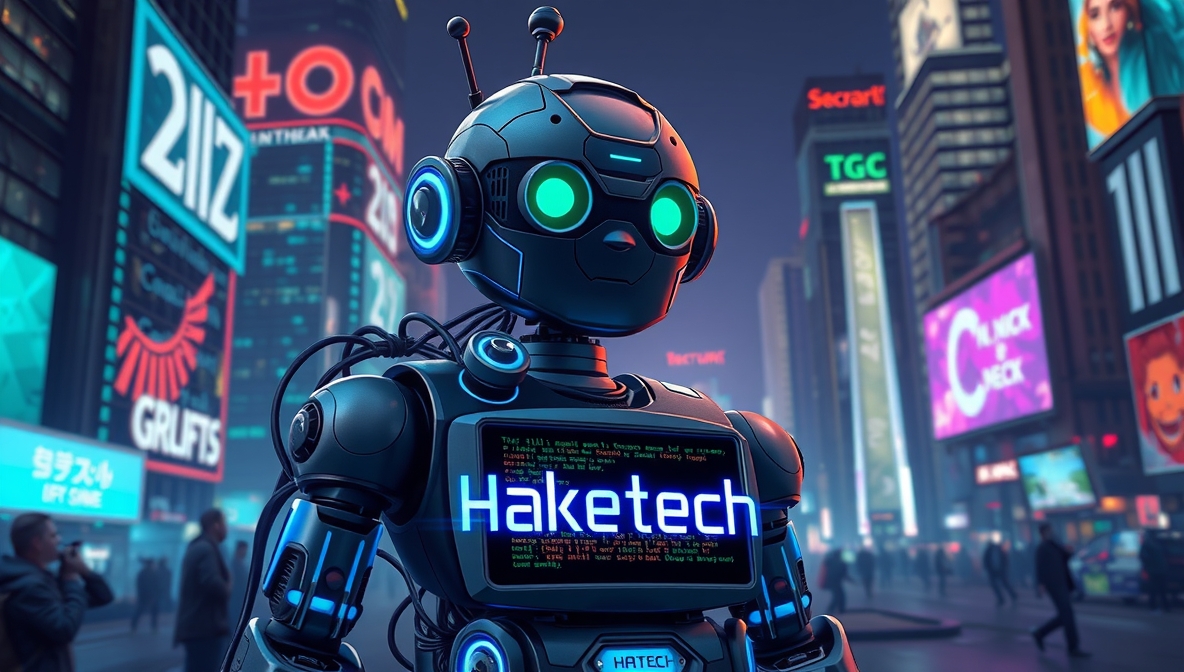Gaming has come a long way from pixelated screens and arcade machines to immersive virtual experiences powered by artificial intelligence and augmented reality. Over the decades, the gaming industry has not only entertained millions but also shaped modern culture, technology, and even social interaction. Behind every controller click or keyboard stroke lies a deeper story of innovation, creativity, and problem-solving. For players, the pursuit of better performance, higher rankings, and more immersive experiences often leads to curiosity about strategies, shortcuts, and methods that can enhance gameplay. While some pursue these paths casually, others search for in-depth guidance through discussions around performance tips and digital optimization methods like gaming hacks thehaketech.
In today’s digital age, games are no longer just about fun—they are about competition, skill-building, storytelling, and community. Whether it’s eSports championships or casual multiplayer battles among friends, the landscape of gaming is richer and more complex than ever before. Players now spend countless hours refining their strategies, upgrading their gear, and adapting to rapidly evolving technologies. onthisveryspots
This article explores the fascinating world of gaming through multiple lenses: the historical journey, the psychology of play, the rise of online competition, and the practical insights players often seek to improve their gaming experiences. Within this, we’ll also reflect on how communities exchange tactics and discuss concepts similar to gaming hacks thehaketech, which are often shared to help gamers unlock hidden potential in both single-player adventures and multiplayer challenges. CHCS
A Historical Look at Gaming
To appreciate the present, it’s important to understand where it all began. The history of gaming stretches back to the early 1970s, with titles like Pong and Space Invaders capturing the imagination of early adopters. These games, though simple by today’s standards, laid the foundation for an industry that would soon grow into a multi-billion-dollar global phenomenon.
The 1980s brought about the golden age of arcade gaming, where cabinets filled with bright lights and sound effects became cultural icons. Gamers often competed for high scores, and in doing so, they began forming the first communities around strategy-sharing. Discussions of how to beat difficult levels or discover hidden Easter eggs were the early versions of today’s online discussions about gaming hacks thehaketech. letsbuildup
The 1990s marked the home console revolution, with companies like Nintendo, Sega, and later Sony making their mark. Titles such as Super Mario 64, The Legend of Zelda: Ocarina of Time, and Final Fantasy VII introduced 3D graphics, deeper narratives, and immersive gameplay. For players, this meant new worlds to explore and more complex mechanics to master.
By the 2000s, online connectivity changed everything. Multiplayer modes, downloadable content, and digital marketplaces transformed gaming into a fully interconnected ecosystem. No longer confined to living rooms, players could challenge opponents from across the world. This global connectivity accelerated the demand for better performance, strategies, and, inevitably, creative techniques that resemble gaming hacks thehaketech—methods shared among online communities to maximize success in competitive settings.

The Psychology of Gaming
Beyond the mechanics of pressing buttons and moving characters, gaming has a deep psychological appeal. Players engage with games for various reasons: to relax, to challenge themselves, to socialize, or to escape reality.
One key aspect of gaming psychology is the concept of flow—a state of complete immersion where the player loses track of time because they are fully engaged in the challenge at hand. Developers design games with carefully balanced levels of difficulty to sustain this state, keeping players hooked while also encouraging them to improve.
Another factor is reward systems. Whether it’s collecting coins, unlocking skins, or achieving higher ranks, these rewards stimulate the brain’s pleasure centers. The anticipation of victory motivates players to keep coming back. Communities discussing gaming hacks thehaketech often tap into this psychological framework, offering shortcuts or optimization tips that help maintain motivation and excitement.
For competitive gamers, the psychology of winning becomes even more profound. The drive to outperform others, achieve recognition, and climb leaderboards can be both thrilling and stressful. This is why many competitive players invest not only in high-quality equipment but also in knowledge—studying strategies, learning from professionals, and staying updated on the latest industry discussions.
eSports and the Competitive Edge
In the last two decades, eSports has emerged as one of the most exciting phenomena in gaming history. Competitive tournaments for games like League of Legends, Dota 2, and Counter-Strike: Global Offensive attract millions of viewers worldwide and offer prize pools worth millions of dollars. Professional gamers train rigorously, often putting in more hours than athletes in traditional sports.
The rise of eSports has also influenced casual players, who now aspire to emulate the strategies and discipline of professionals. This desire to improve performance feeds into the growing curiosity about advanced methods, optimizations, and conversations that mirror gaming hacks thehaketech. For many players, these tips serve as stepping stones to achieving greater mastery.
Streaming platforms such as Twitch and YouTube Gaming have further amplified this competitive culture. Viewers watch professional gamers not only for entertainment but also to learn new techniques. This constant exchange of information, combined with communities dedicated to sharing knowledge, makes competitive gaming both a performance sport and an educational ecosystem. clothingcenteruk
The Role of Technology in Modern Gaming
The evolution of hardware and software has been central to the growth of gaming. Graphics processing units (GPUs), high-refresh-rate monitors, and ultra-responsive peripherals allow players to experience games at levels of immersion and performance unimaginable in the past. new games thehaketech
Artificial intelligence (AI) has also become a game-changer. From adaptive enemy behavior to personalized recommendations, AI influences nearly every aspect of gaming. Developers use machine learning to enhance graphics, predict player preferences, and balance difficulty levels dynamically.
Cloud gaming platforms now allow players to stream high-quality titles without requiring expensive hardware. This democratizes access to games, enabling more people to participate in the global gaming community. However, with this expansion comes new challenges, as players continue seeking reliable ways to optimize performance. Once again, conversations parallel to gaming hacks thehaketech emerge, with gamers exploring methods to reduce latency, improve frame rates, and enhance control responsiveness.
Virtual reality (VR) and augmented reality (AR) add another dimension to the mix, making gaming more immersive than ever. These technologies not only change how games are played but also how strategies and performance enhancements are considered. Optimizing VR experiences requires a different approach, often blending hardware adjustments with in-game techniques.
Communities and Knowledge Sharing
Perhaps one of the most powerful aspects of gaming is its community-driven culture. Forums, Discord servers, Reddit threads, and fan sites all serve as hubs where gamers connect, share experiences, and exchange knowledge.
In these communities, players often discuss everything from story interpretations to technical troubleshooting. Some of the most active threads involve tips, tricks, and methods that resemble gaming hacks thehaketech—practical advice for improving gameplay efficiency, solving difficult challenges, or maximizing in-game resources.
These shared strategies foster a sense of collaboration, even in competitive environments. Players feel empowered when they discover new insights, and many are eager to share their findings with others. This cycle of knowledge-sharing not only strengthens communities but also accelerates innovation within the gaming world.
Balancing Fair Play and Innovation
While discussions around advanced techniques and optimization methods are common, the line between fair play and unfair advantage must always be considered. Developers work hard to ensure balanced experiences for all players. Any method that breaks these boundaries risks damaging the integrity of the game. HCCS US
That said, not all strategies fall into the category of cheating. Many players explore legitimate optimization techniques—adjusting settings, mastering mechanics, and developing creative playstyles. Communities referencing gaming hacks thehaketech often focus on these permissible methods, emphasizing innovation rather than exploitation.
Fair competition is crucial in preserving the spirit of gaming. When communities work together to share ethical strategies, the result is a more inclusive and enjoyable environment for everyone. HUSS
The Future of Gaming
As we look ahead, the future of gaming promises even more groundbreaking changes. The integration of artificial intelligence, blockchain-based economies, and immersive technologies will reshape how games are played, monetized, and experienced.
The rise of the metaverse—a collective virtual space where players interact across multiple digital environments—could redefine the boundaries of gaming. Here, strategies for performance and engagement will be even more valuable. Conversations similar to gaming hacks thehaketech will likely continue evolving, focusing on adapting to new technologies and uncovering the best ways to thrive in digital ecosystems.
Moreover, gaming will increasingly intersect with education, healthcare, and professional training. Gamified learning platforms, rehabilitation programs, and simulations already demonstrate the potential of gaming beyond entertainment. These applications further highlight the need for effective strategies and knowledge-sharing.
Conclusion
Gaming is more than just a pastime—it’s a cultural force, a technological frontier, and a community-driven phenomenon. From its humble beginnings in arcades to the high-stakes arenas of eSports, the journey of gaming reflects human creativity and the desire to connect, compete, and improve.
At the heart of this evolution is the exchange of knowledge. Players are constantly seeking ways to refine their skills, optimize performance, and discover hidden potential. Conversations that resemble gaming hacks thehaketech embody this spirit of collaboration and curiosity, offering pathways to deeper engagement and mastery.
As technology continues to advance, the opportunities for gamers will only expand. Whether through virtual worlds, competitive stages, or community-driven platforms, the future of gaming is bright and boundless. And as long as players remain curious, innovative, and connected, the journey will keep unfolding in exciting and unpredictable ways.

FAQs
Q1. What are gaming hacks thehaketech in general?
Gaming hacks usually refer to strategies, tips, or techniques that help players improve their gameplay. These can include optimizing settings, mastering mechanics, or discovering hidden features within a game.
Q2. Are all gaming hacks considered cheating?
No, not all gaming hacks are cheats. Many are simply creative strategies or legitimate performance improvements, such as adjusting graphics settings for smoother gameplay or learning advanced character combos. Cheating usually involves external software that breaks game rules.
Q3. Why do gamers look for advanced strategies?
Players seek advanced methods because modern games are highly competitive and complex. Learning smarter ways to play helps save time, increase enjoyment, and achieve better results in both single-player and multiplayer modes.
Q4. How do communities share gaming strategies?
Gamers often connect through forums, Discord groups, Reddit communities, or social media. These platforms allow players to share walkthroughs, settings recommendations, and creative solutions that enhance the overall gaming experience.
Q5. What role does technology play in gaming performance?
Technology is critical—powerful GPUs, high-refresh-rate monitors, responsive controllers, and fast internet connections all shape how smooth and competitive gameplay feels. Optimization often begins with having the right setup.




